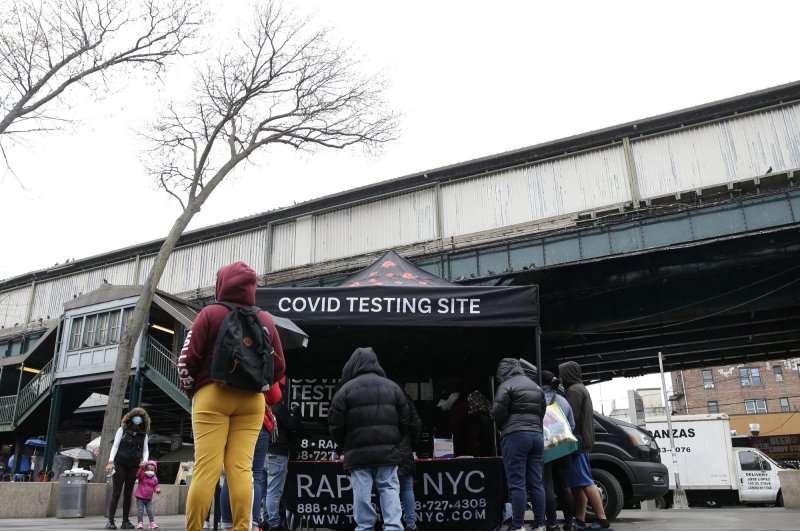1 of 4 | The White House on Tuesday sent a letter to congressional leaders warning it will be forced to scale back various COVID-19 programs due to a lack of funding as early as next week. Photo by John Angelillo/UPI |
License Photo
March 15 (UPI) -- The White House on Tuesday warned it will begin to wind down portions of its COVID-19 response as early as next week as efforts to approve additional funding in Congress have faltered.
In a letter to congressional leaders, White House COVID-19 response coordinator Jeff Zients and acting director of the Office of Management and Budgets Shalanda Young warned that a lack of funding would lead to shuttering of programs providing testing, treatment and vaccination to the uninsured and a shrotage of booster doses and monoclonal antibody treatments among other consequences.
"We continue to urge Congress to provide critical funds needed to prevent severe disruptions to our COVID response," they wrote.
The White House said some of the most immediate impacts would be felt on March 22 as a fund that reimburses doctors and other medical providers for providing COVID-19 care to uninsured individuals would stop accepting new claims before ending completely on April 5.
It also warned that the federal goverment does not have "adequate resources" to purchase booster doses for all Americans if a potential fourth dose is needed.
"The shortages will be even more acute if we need a variant-specific booster vaccine, since we will not have any existing supply," the letter stated.
Further, Zients and Young said the federal government would cancel plans to purchase more oral antiviral treatments such as Pfizer's Paxlovid beyond the 20 million it had already secured due to the lack of funding.
Beginning next week the government would also cut state allocations of the existing supply by more than 30%.
Other impacts include efforts to prevent future outbreaks such as scaling back surveillance of future variants, stalling research and production of vaccines to provide protection against such variants and inability to provide funding to other nations for their own COVID-19 prevention programs.
"In addition to these immediate impacts, failing to provide additional funding for the COVID response now will leave us unequipped to deal with a future surge," Zients and Young wrote. "With cases rising abroad, scientific and medical experts have been clear that in the next couple of months we could see rising cases of COVID-19 her in the United States as well."
The $15.6 billion in funding to continue these programs was originally set to be included in a $1.5 trillion government spending bill that President Joe Biden signed on Tuesday.
However, House Speaker Nancy Pelosi announced last week that the funding had been cut amid opposition to a provision that would use money from states that did not make use of funding provided to them under the $1.9 trillion American Rescue Plan to offset the cost.















